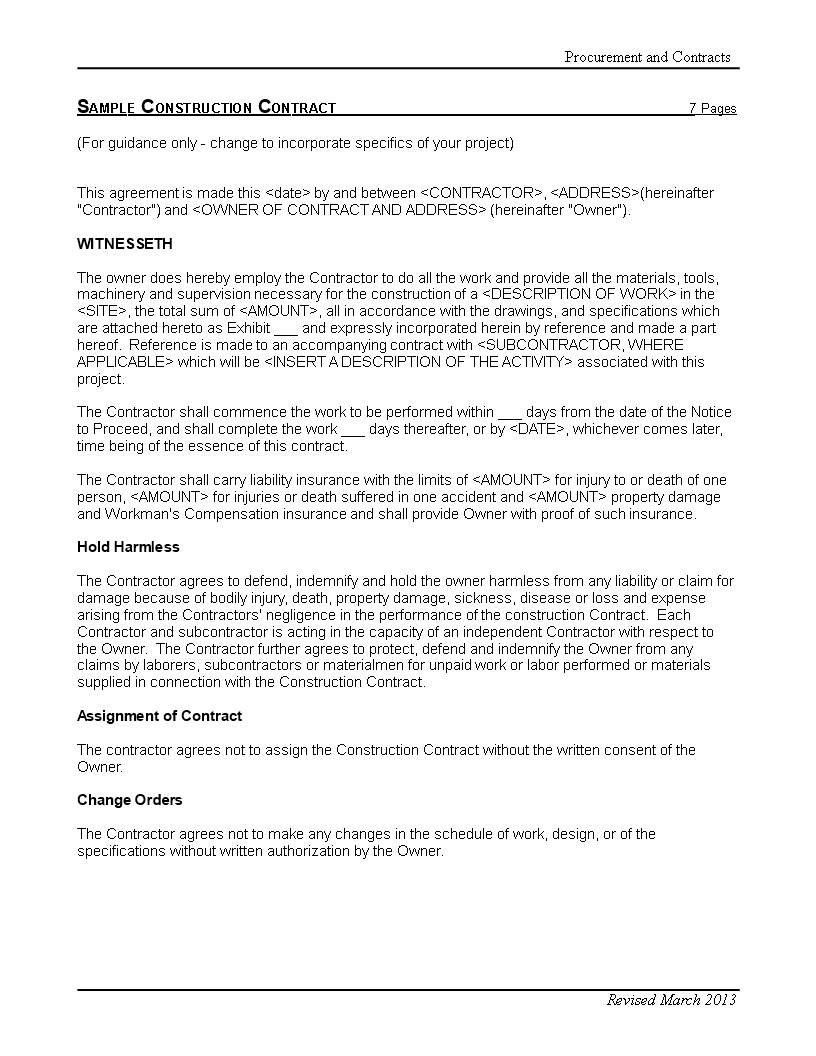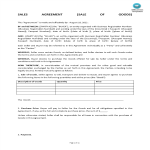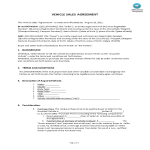Sample Construction Contract
Save, fill-In The Blanks, Print, Done!

Download Sample Construction Contract
Microsoft Word (.doc)Or select the format you want and we convert it for you for free:
- This Document Has Been Certified by a Professional
- 100% customizable
- This is a digital download (46.5 kB)
- Language: English
- We recommend downloading this file onto your computer.
How does a construction contract work? In what way does a construction contract agreement serve its purpose? Our templates have been designed to cover all of the most important terms and conditions of a construction contract. Download this sample template now and use this to make a contract for your construction company!
A construction contract is a legally binding agreement between two parties, typically a client or owner and a contractor, that outlines the terms and conditions for a construction project. This document specifies various aspects of the project, including the scope of work, project timeline, payment terms, responsibilities of each party, and other important details. The primary purpose of a construction contract is to protect the interests of both the client and the contractor by providing a clear framework for the project and helping to prevent disputes and misunderstandings.
Key elements typically found in a construction contract include:
- Scope of Work: A detailed description of the work to be performed, including architectural plans, specifications, and any other relevant project documents.
- Project Timeline: The contract should specify the project start and completion dates, as well as any intermediate milestones.
- Payment Terms: This section outlines the payment schedule, including the total contract price, progress payments, and any retainage amounts.
- Change Orders: Procedures for handling changes or modifications to the original scope of work, including how additional costs and time extensions will be addressed.
- Responsibilities: Defines the responsibilities of the client and the contractor, including who is responsible for obtaining permits, providing materials, and meeting other project requirements.
- Quality and Performance Standards: Specifies the quality standards and performance expectations for the construction work, including the use of specific materials and construction methods.
- Dispute Resolution: Outlines the procedures for resolving disputes or disagreements that may arise during the project, which could include mediation, arbitration, or litigation.
- Termination: Conditions under which the contract can be terminated by either party, as well as the consequences of such termination.
- Insurance and Liability: Addresses insurance requirements and liability coverage to protect against accidents, damages, or injuries during the construction project.
- Warranties: Details any warranties provided by the contractor for the work, materials, or equipment used in the project.
Construction contracts can take various forms, such as lump-sum contracts, cost-plus contracts, time and materials contracts, and more, depending on the specific needs of the project and the preferences of the parties involved. It's essential for all parties to thoroughly review and understand the terms of the contract before signing to ensure that their interests and expectations are adequately addressed and protected. Consulting with legal counsel or a construction professional is often advisable when drafting or entering into a construction contract.
DISCLAIMER
Nothing on this site shall be considered legal advice and no attorney-client relationship is established.
Leave a Reply. If you have any questions or remarks, feel free to post them below.
Related templates
Latest templates
Latest topics
- GDPR Compliance Templates
What do you need to become GDPR compliant? Are you looking for useful GDPR document templates to make you compliant? All these compliance documents will be available to download instantly... - Google Docs Templates
How to create documents in Google Docs? We provide Google Docs compatible template and these are the reasons why it's useful to work with Google Docs... - IT Security Standards Kit
What are IT Security Standards? Check out our collection of this newly updated IT Security Kit Standard templates, including policies, controls, processes, checklists, procedures and other documents. - Letter Format
How to format a letter? Here is a brief overview of common letter formats and templates in USA and UK and get inspirited immediately! - Google Sheets Templates
How to work with Google Sheets templates? Where to download useful Google Sheets templates? Check out our samples here.
cheese




